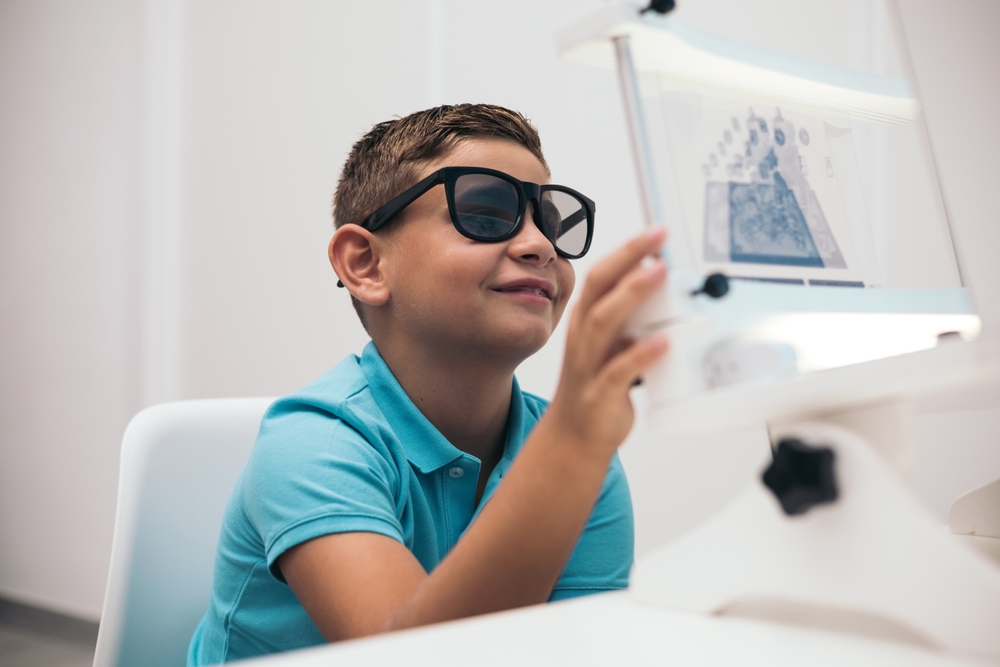
Vision therapy is a specialized form of treatment that aims to improve visual function and address a variety of vision-related issues. It is a non-surgical, customized approach that targets the underlying causes of visual problems, rather than simply treating the symptoms. By working with a trained vision therapist, individuals can develop and strengthen the visual skills necessary for optimal performance in everyday activities.
Understanding Vision Therapy and How it Works
Vision therapy is based on the principle that the visual system is a complex and dynamic network of processes, including eye movements, focusing, and visual-motor integration. When these processes are not functioning properly, it can lead to a range of visual difficulties. Vision therapy works by providing targeted exercises and activities that stimulate the visual system, helping to retrain and strengthen the necessary visual skills.
Common Conditions that Can Be Treated with Vision Therapy
Vision therapy has been shown to be effective in treating a wide range of visual conditions, including:
• Strabismus (Crossed Eyes): Vision therapy can help improve the alignment of the eyes, reducing or eliminating the need for surgery in some cases.
• Amblyopia (Lazy Eye): By enhancing the weaker eye's function, vision therapy can help improve visual acuity and coordination.
• Convergence Insufficiency: This condition affects the eyes' ability to work together at close distances. Vision therapy can help improve near-point focus and reduce symptoms like eye strain and headaches.
• Double Vision (Diplopia): Vision therapy can train the eyes to work together more effectively, reducing or eliminating double vision.
• Eye Tracking Problems: Issues with eye movement and tracking, often seen in children with reading difficulties, can be addressed through vision therapy.
• Visual Processing Disorders: These conditions, which affect how the brain interprets visual information, can be improved with targeted exercises and activities in vision therapy.
• Sports Vision Problems: Vision therapy can enhance visual skills like hand-eye coordination, depth perception, and reaction time, improving athletic performance.
• Accommodative Disorders: Problems with focusing, particularly when shifting between near and far objects, can be treated with vision therapy.
• Post-Traumatic Vision Syndrome: After a head injury, some patients experience visual disturbances that can be alleviated with vision therapy.
• Learning-Related Vision Problems: Vision therapy can help children who struggle with reading, writing, and other academic tasks due to visual inefficiencies.
By addressing the underlying causes of these visual problems, vision therapy can help improve overall visual function and enhance an individual's performance in various areas of life.
The Process of Vision Therapy
The process of vision therapy begins with a comprehensive eye examination by a qualified eye care professional. This evaluation helps to identify the specific visual problems and develop a personalized treatment plan. Once the treatment plan is established, the patient will work with a vision therapist, often in a series of one-on-one sessions, to complete a variety of exercises and activities designed to address the identified issues.
Get Started with Pupila Family Eye & Ear Care Today
Vision therapy is a versatile and effective treatment approach that can address a wide range of visual conditions and disorders. Whether you are struggling with amblyopia, strabismus, binocular vision problems, or visual processing issues, vision therapy may be able to help. By working with a trained vision therapist, you can develop and strengthen the visual skills necessary for optimal performance in your daily activities.
If you or a loved one is experiencing any of the vision-related issues, contact Pupila Family Eye & Ear Care. We can provide a comprehensive assessment and develop a customized treatment plan to address your specific visual needs. Visit our office in Pasadena, Texas, or call (281) 445-2021 to take the first step towards better vision and improved quality of life today.








